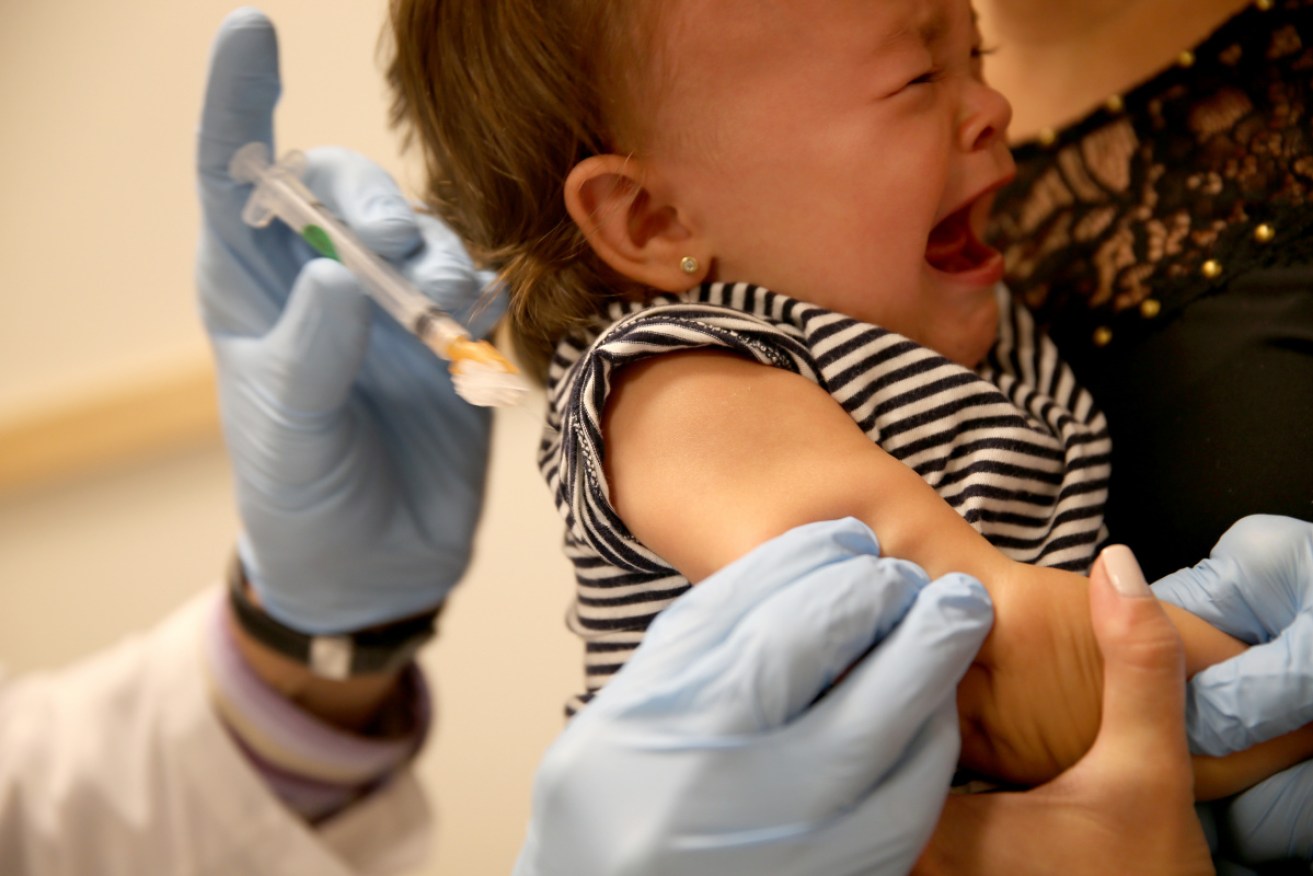New York suburb slaps ban on unvaccinated kids, amid measles emergency


One expert says scare tactics can actually turn people off vaccination. Photo: Getty
A county in New York City’s northern suburbs has banned unvaccinated children from gathering in public places as it battles a measles outbreak that has infected more than 150 people since September.
The ban affects anyone under 18 who is not vaccinated against the deadly virus and comes as Rockland County declares a state of emergency in its fight against the ongoing outbreak.
The 30-day ban includes shopping centres, civic centres, schools, restaurants and houses of worship. Those who flout it could be charged with an offence punishable by up to six months in jail.
“It’s an attention grab, there’s no question about it,” Rockland County Executive Ed Day said, noting he did not believe such a drastic step had been tried in the US before.
Mr Day said the move aimed to reverse a recent rise in measles cases amid reports that health workers were meeting resistance when investigating.
But Mr Day acknowledged that there would be no concerted enforcement effort and that the intent was not to arrest people but to emphasise the seriousness of the situation.

Ed Day announces the ban on unvaccinated children. Photo: AAP
Rockland County is in the middle of New York state’s longest measles outbreak since the disease was declared officially eliminated from the United States in 2000. It began when seven unvaccinated travellers diagnosed with measles entered the county last October.
Since then, an executive order has pulled close to 6000 unvaccinated children out of schools, The New York Times reports. Nearly 17,000 doses of the measles, mumps and rubella vaccine have been given in 26 weeks, while a public health campaign has involved community officials, doctors and rabbis testifying to the importance of immunisations.
But all to little avail.
There have been 153 cases to date, Mr Day said. In the early days of the outbreak, people co-operated with health officials and had their children vaccinated, he said, but that has changed.
“Our health inspectors have been hung up on and told not to call again. They’ve been told, ‘We’re not discussing this, do not come back’, when visiting the homes of infected individuals as part of their investigations,” he said.
“This type of response is unacceptable and frankly irresponsible.”
The NYT reports the Rockland outbreak has been largely concentrated in ultra-Orthodox Jewish communities. Their vaccination rates tend to be lower, and anti-vaccination literature has spread, according to public officials.
The declaration highlighted the desperation of officials to control the spread of a disease they have so far struggled to halt.
“We must not allow this outbreak to continue indefinitely or worsen again,” Mr Day said. “We will not sit idly by while children in our community are at risk.”
Rabbi Yakov Horowitz, the founding dean of Yeshiva Darchei Noam in Monsey, New York, a community at the centre of Rockland County’s measles outbreak, said he strongly supported vaccinations. But he was worried the county’s declaration might lead to potential harassment, attacks and discrimination against ultra-Orthodox Jews.
Lawrence Gostin, a professor of global health law at Georgetown University, said he found Rockland County’s emergency order deeply problematic.
“This is virtually imprisonment of a child, and certainly significantly restricting the child’s liberty,” Professor Gostin said.
Meanwhile, back in Australia, Victorian and Queensland health authorities have issued a measles alert as a young man is treated for the disease in a Melbourne hospital.
Victoria’s latest measles case is unrelated to a woman who attended the Melbourne Formula One GP while infectious with the disease.
But it comes as Queensland health authorities confirmed on Monday a case of a man with measles who visited areas across Brisbane from March 13-21.
Victoria’s chief health officer Brett Sutton said the cases are a timely reminder for people to ensure they are vaccinated
Measles is highly infectious. Symptoms include fever, a severe cough, conjunctivitis and coryza, followed by a rash starting on the face.
Patients can be infectious roughly five days before and four days after the rash appears.
-with AAP








